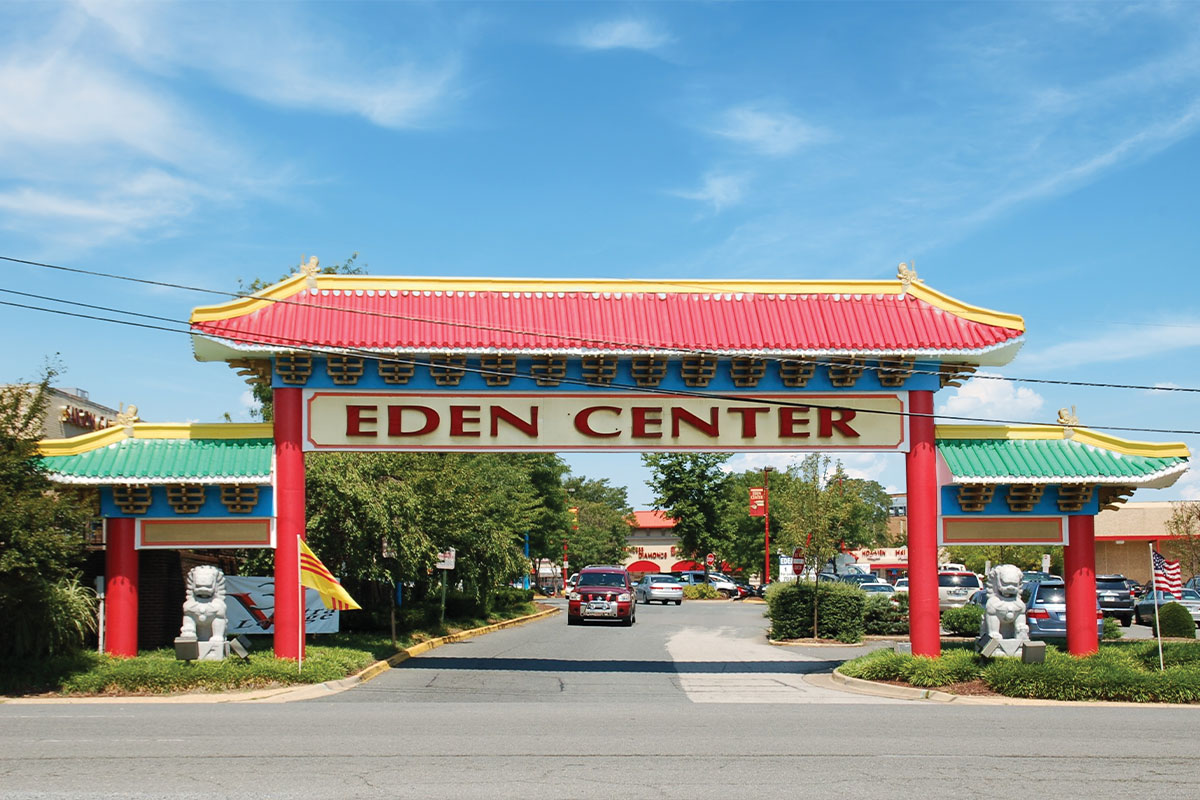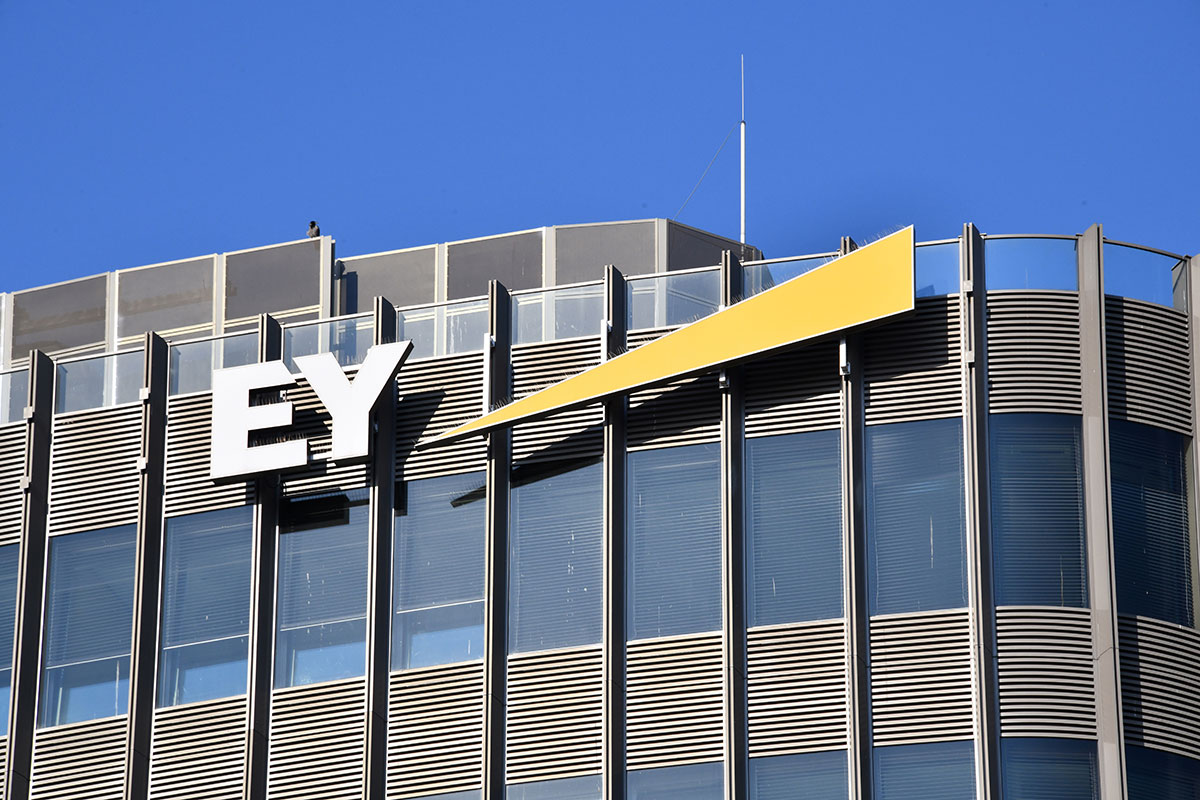On a Saturday afternoon in July, the popular bubble tea shop TeaDM in Falls Church is bustling with energy: People are chatting over cooling drinks like the signature sea salt coffee, a refreshing Vietnamese brew with sea salt cream. The interior is decked out like a futuristic airplane and sounds like a party, pumping out electronic dance music.
The boba shop, one of four TeaDM locations (all in NoVA), sits in Eden Center, the historic Vietnamese shopping center on Wilson Boulevard in Falls Church that’s home to around 115 restaurants, shops, and markets. The owner, Jay Tran, 36, opened this location in 2016; he moved to the U.S. from Vietnam in 2006.
Even though Tran’s company is expanding and enjoying steady business, he says it’s a challenge to stand out and stay afloat at Eden Center — particularly with a monthly rent of around $15,000 that goes up by 3 percent each year.
“There’s always competition around. I have a bubble tea shop, but there’s like 10 or 15 bubble tea shops around,” Tran says.
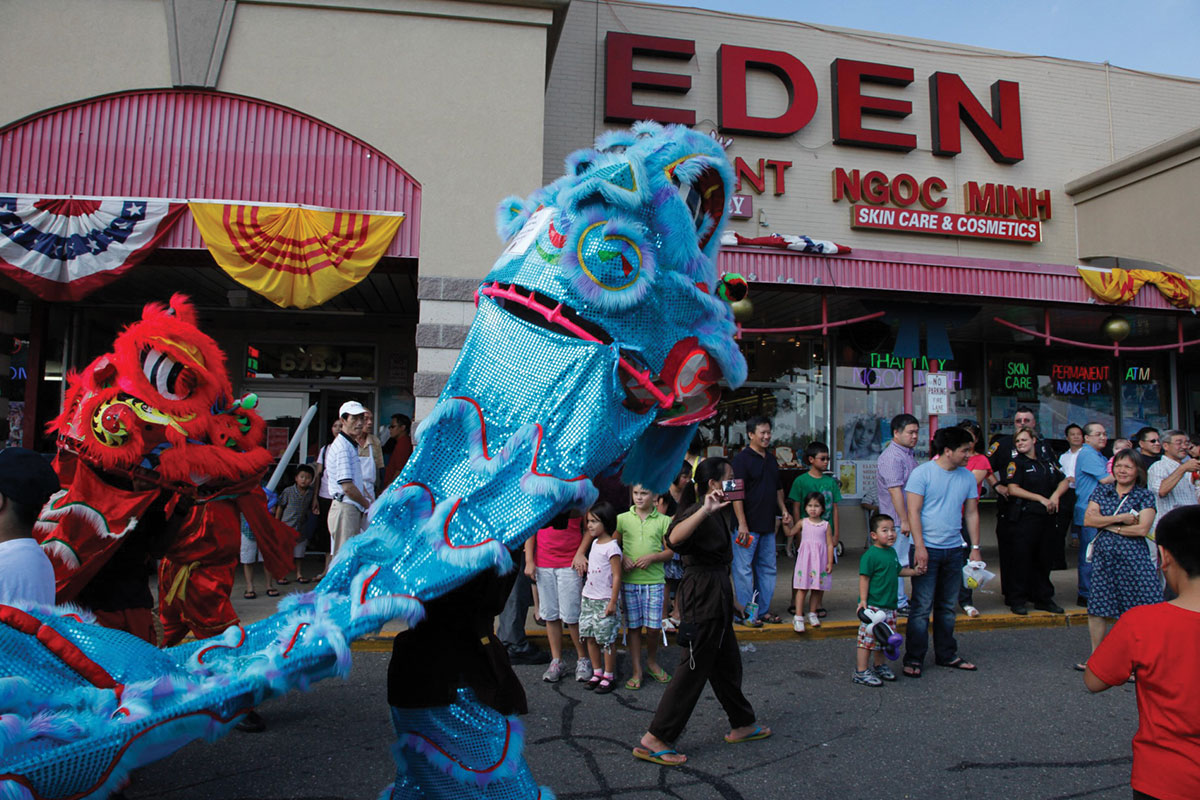
Like many of Eden Center’s business owners, Tran has been tuned in to recent city plans to make changes to the site of the shopping center and is eager to learn how they would affect business, parking, and more. On June 26, after a year and a half of deliberation, the City of Falls Church unanimously approved the East End Small Area Plan, a proposal for redevelopment and reinvestment of a 10-block zone that includes Eden Center and part of Seven Corners. Since the plan’s inception, quite a few small-business owners and their advocates have been worried about being priced out of this beacon of Vietnamese culture.
The 161-page document reads like an urban planner’s fantasy. If implemented, the plan would make the area much more pedestrian friendly, break up long blocks into shorter ones, add bike lanes, build indoor parking to reduce the current sprawl, make space for plenty of outdoor dining, establish a true public gathering space (currently, Eden Center holds various festivals in the parking lot), create “pocket parks” with Wi-Fi, and construct play spaces for children.
There’s also a suggestion of a “themed boutique hotel” for the many out-of-town visitors who make Eden Center their destination. There are nods to Vietnamese culture, including establishing a cultural center with language classes, erecting murals and other public art, and night markets. Overall, the plan imagines an “international town center,” rather than the current uninspiring strip mall area, with residences mixed in among businesses.
A walkable zone that replaces unsightly suburban sprawl, green space, art that honors the community — it all sounds pretty appealing on first glance. But some business owners and community members see different writing on the wall: All those upgrades could lead to higher rents, which could then lead to displacement — not tomorrow, but years down the road. The concerns aren’t unfounded. This is exactly what happened in the early 1980s, when many Vietnamese businesses were forced to leave an area of Clarendon then known as “Little Saigon” as Metro construction began and property values rose. Many relocated to what’s now known as Eden Center.
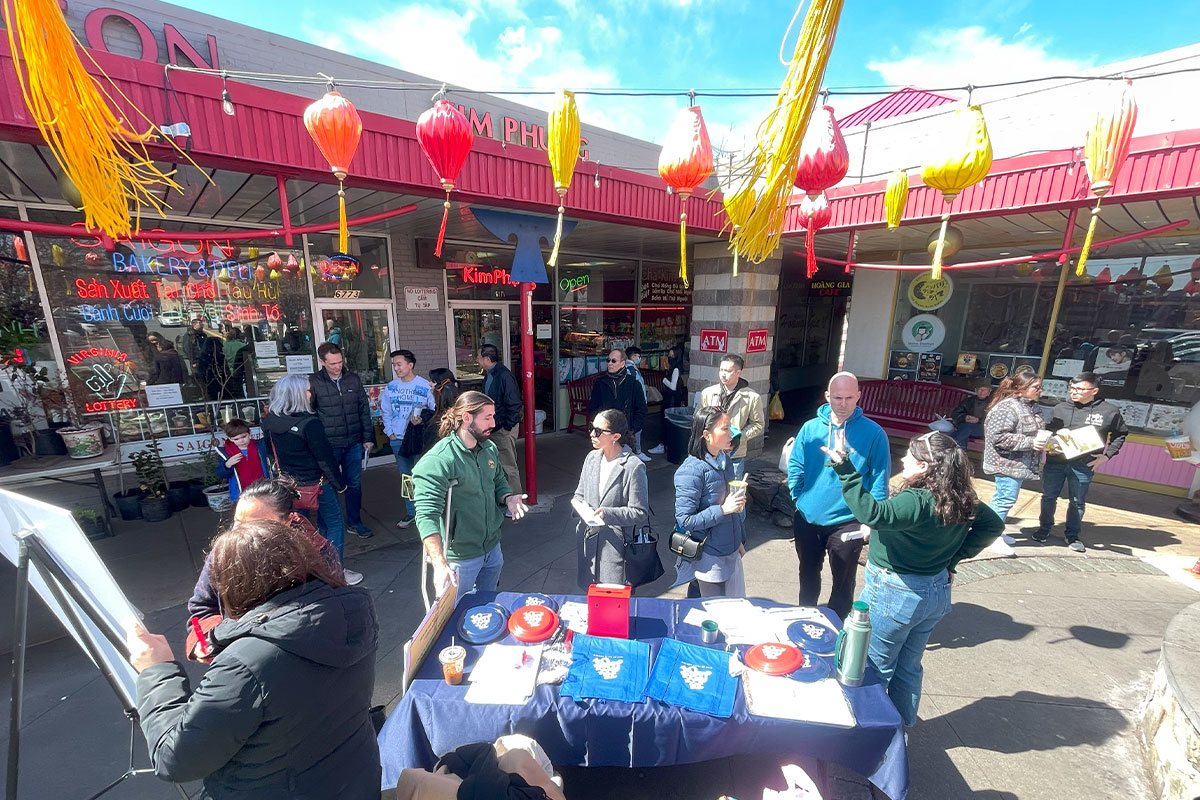
“I have a lot of customers coming here … but adding more business means competition,” says Tran. “That’s definitely a worry for not only me, but many other businesses in here. Eden Center is a very special shopping center. I think everyone should be heard because a lot of businesses, not all of us are doing well. Many of us are struggling.”
City officials stress that the plan is hardly binding — it’s simply a guide. “I think early on, there was an unfortunate use of the word ‘redevelopment,’” says Falls Church Vice Mayor Letty Hardi. “That created lots of consternation and for the right reasons, because we all want the Eden Center to be preserved. But there really are no bulldozers coming for the Eden Center. And I think a lot of the concerns were unfounded.”
Alan Frank, general counsel and senior vice president of Capital Commercial Properties, which owns the entire property, says, “Eden Center is a special place, and we plan to keep it that way,” adding that there’s “no pending or planned redevelopment.”
The project has come a long way since the city originally began discussing it in November 2021. Early in the process, many of the business owners, particularly those who speak primarily Vietnamese, weren’t aware of the plans. But thanks to an advocacy group called Viet Place Collective that’s made up primarily of second- and third-generation Vietnamese Americans, a series of pop-up meetings was held at Eden Center to let business owners be heard.
“Immigrant communities, especially folks whose English is limited, face barriers to civic participation; our organizing aims to break down those barriers by translating, building trust, offering multiple ways to take action, and empowering folks to speak up about what concerns them,” a statement from the collective reads.
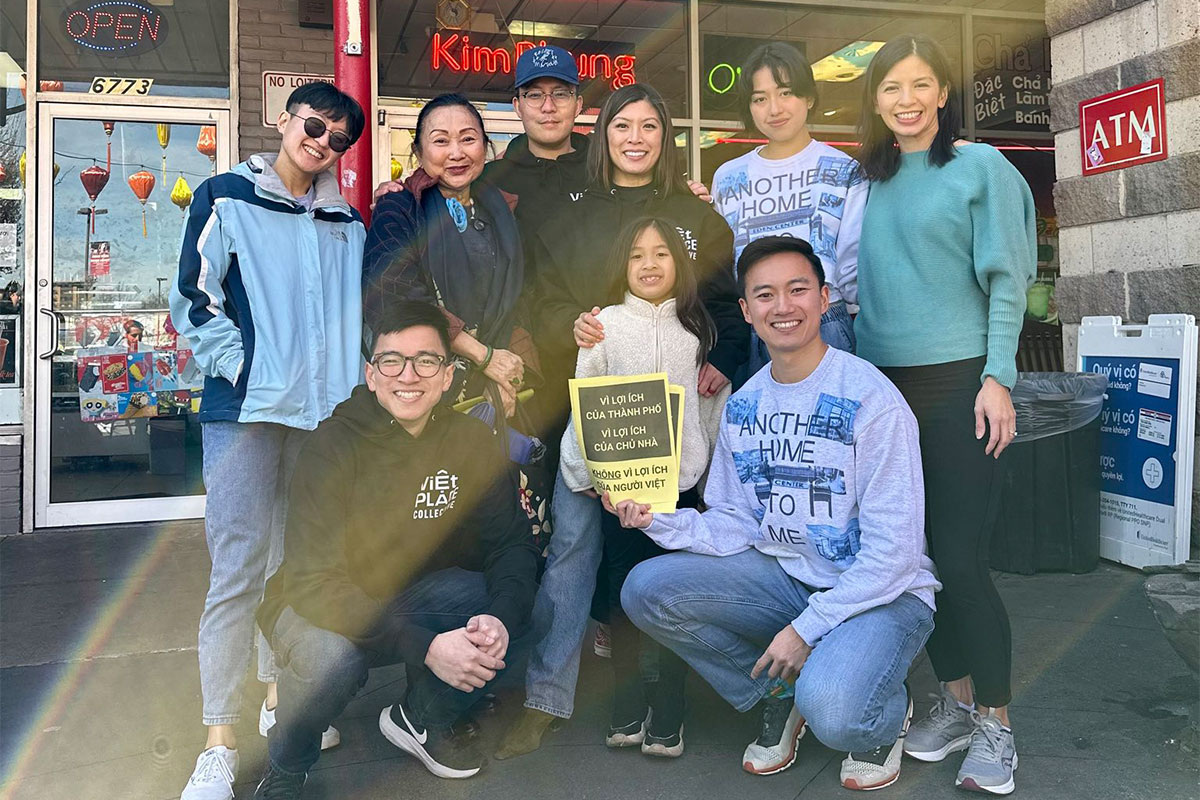
Viet Place Collective has urged the city to make anti-displacement a primary goal of the small-area plan, which includes taking steps to preserve legacy businesses; hiring a Vietnamese-speaking community outreach specialist; and providing businesses with services such as pro-bono or discounted legal assistance, construction disruption mitigation, and a neighborhood business incubator. The group has encouraged the city to increase how much parking the center has, as well as to commission Vietnamese artists for any public art and to rename the area Little Saigon East.
“Eden Center is near and dear to us, as young Vietnamese and Asian Americans, as a place where Vietnamese culture is preserved and celebrated,” says the collective. “For those who fled Vietnam due to the Vietnam war, Eden Center reminds them of their home; for those who were born from those immigrants, Eden Center is the setting of many of our childhood memories here. As the center of the Vietnamese community in the DMV, Eden Center keeps alive our culture that is threatened with societal pressures of assimilation.”
Anti-displacement language figures prominently in the final city plan. But nothing will happen unless it’s funded, and it remains to be seen whether the city will fund and pilot anti-displacement efforts. The collective says it plans to hold the city accountable. There will be opportunities to secure funding in the 2025 budget, which the city begins discussing in December, and in the City Council Work Plan after the new council takes office in January 2024.
“This plan is a plan of displacement,” unless the city commits to funding its promises, said Derek Hyra at the Falls Church Planning Commission hearing on June 7. Hyra is a Falls Church city planning commissioner and American University urban policy professor whose research focuses on neighborhood change.
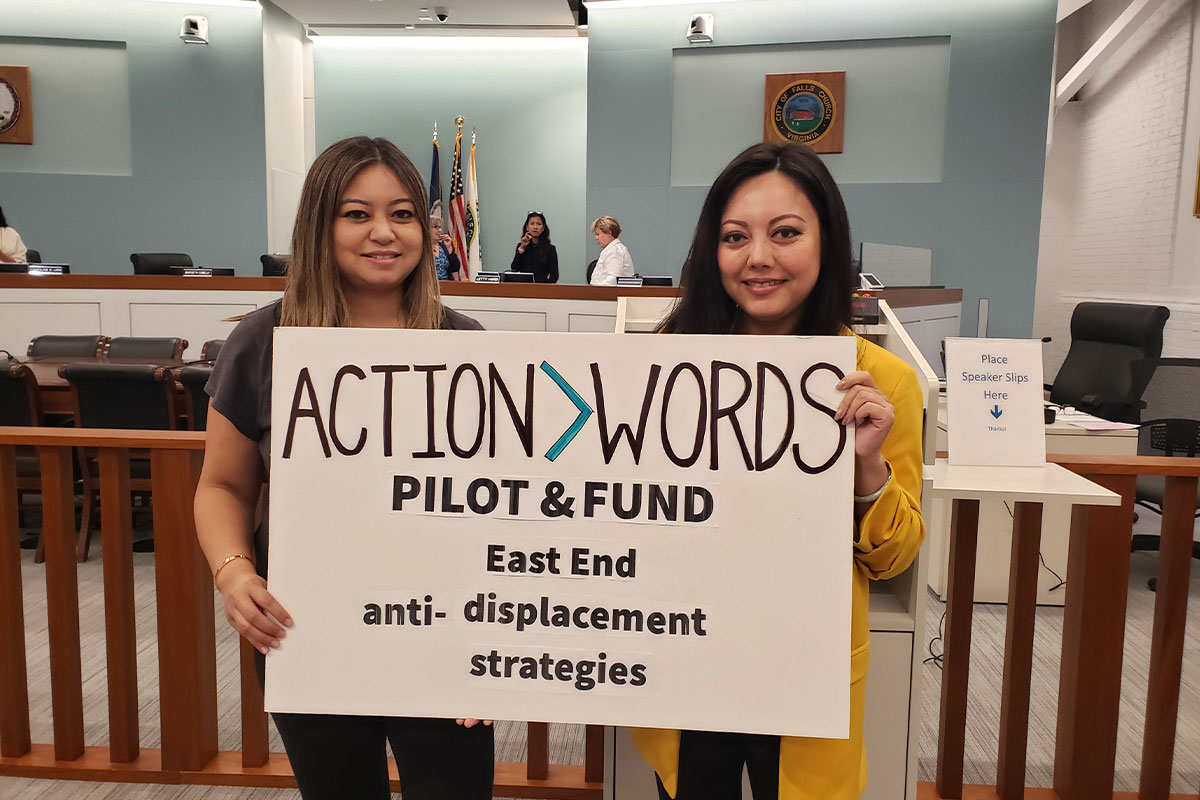
Hyra, while praising the language of the plan, was the only city commissioner to vote against recommending it to the city council. In an interview, he provides a little context on the small-area plan. He explains that recent development in West Falls Church — a big mixed-use project is in the works near the West Falls Church Metro Station, on a site formerly occupied by George Mason High School — spurred planners to see where they could stimulate more economic development on the city’s east side as well. Additionally, he says, there’s a “ring road” project underway to try to improve traffic in Seven Corners, which is certain to spur rezoning and redevelopment.
Hyra stresses that development doesn’t happen in a vacuum — meaning that just because an owner doesn’t plan to redevelop the property doesn’t mean it’s impervious to redevelopment forever, especially once the area is rezoned.
“We change it from commercial to residential, and it instantly becomes more valuable when we make a zoning change to go to higher density … we raise the value of the land even if no redevelopment is done,” Hyra says. “Once the developer knows rezoning has happened and the value of the land goes up, they start getting offers from investors to do development. Also, even if nothing happens at the Eden Center, development is going to happen on the parcels that are adjacent to the Eden Center that are in Fairfax. Well, when the Fairfax properties get redeveloped, it will instantly raise the property value at the Eden Center.”
No matter what might happen, many business owners are concerned about issues such as parking, which is particularly challenging on busy weekends, and upkeep of the aging buildings.
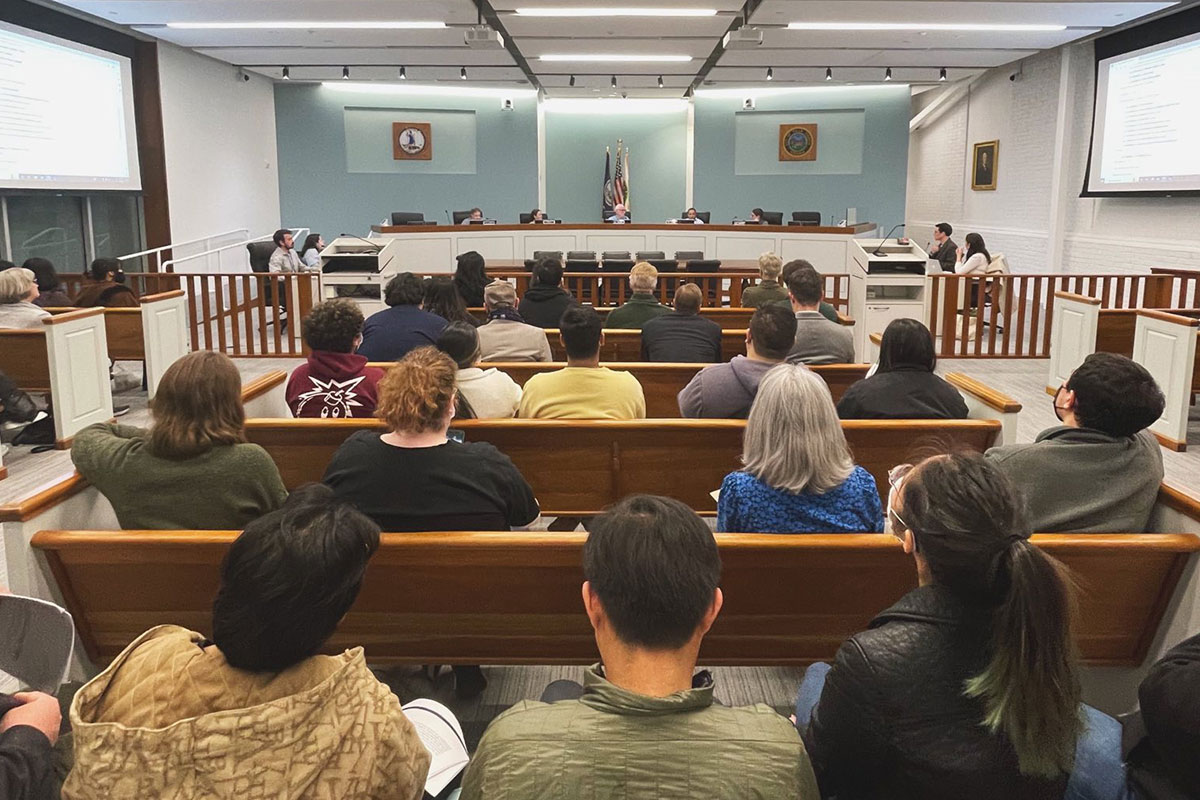
The city hopes to invest in sidewalks, crosswalks, streetlights, and elements like banners that highlight the area as a gateway to Falls Church, says Paul Stoddard, planning director for Falls Church. “I think that’s what we’ll start to do on the public side — try to marshal some public funds to help highlight the area, make it a little safer for people to get around, people to walk,” he says.
Tran, who is younger than many of Eden Center’s other business owners, is trying to stay optimistic about the proposed plans. He says he would welcome more businesses and increased foot traffic if it meant better business for TeaDM. He’s also encouraged by any plans that improve parking, including the building of a garage. He says he has been lobbying the owners for improvements that would help spruce up outdated facades.
Other business owners are not as optimistic about the future. “We have a hard time trusting the city’s words, because in 2008 we had town halls with the city asking for help and assistance,” a business owner who chose to stay anonymous says through Viet Place Collective. “We did town hall meetings, we did city functions, to help with our rent because rent is too high. … Nobody helps us. I remember 34 years ago when … the same thing happened in Clarendon, where they came up with a plan to build apartments and new buildings but preserve the storefronts. They improved the streets — but then the Metro came, and the new buildings came, and we had to find a new place to go.”
Feature image courtesy Capital Commercial Properties
This story originally ran in our September issue. For more stories like this, subscribe to Northern Virginia Magazine.

